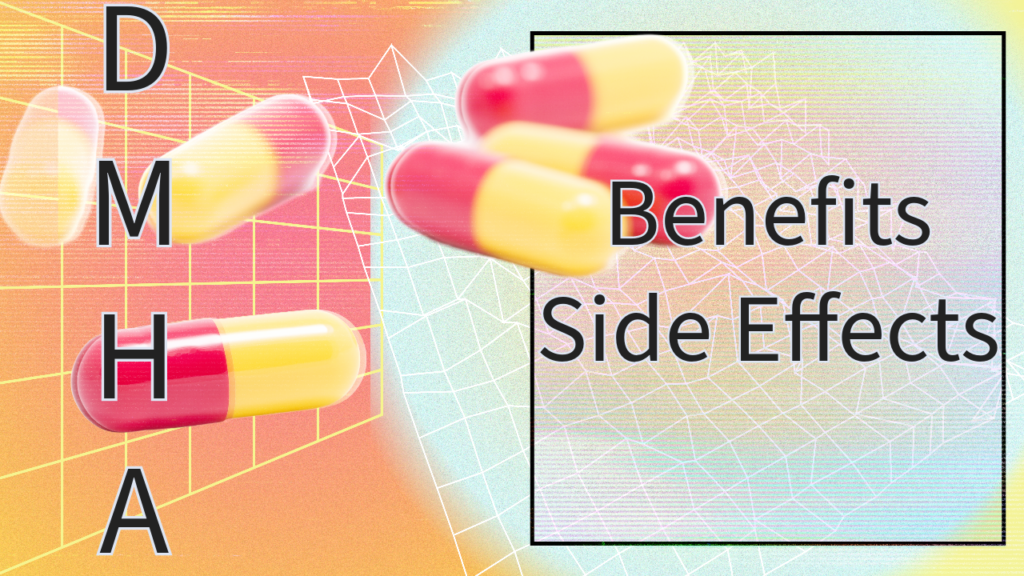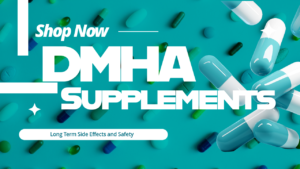In the world of fitness and bodybuilding, staying ahead of the game is crucial. As new ingredients and supplements emerge, athletes and fitness enthusiasts are always on the lookout for the next big thing. One such compound that has gained popularity in recent years is DMHA, also known as 1,5-Dimethylhexylamine or octodrine. In this comprehensive guide, we will delve into the world of DMHA, exploring its use as a fat burner, its benefits for bodybuilding, and its potential side effects. So, let’s dive in and discover everything you need to know about DMHA.

What is DMHA?
DMHA, or 1,5-Dimethylhexylamine, is a stimulant compound that shares similarities with DMAA (1,3-Dimethylamylamine). Originally used as a decongestant, DMHA has found its way into the world of supplements due to its potential performance-enhancing and weight loss properties. Although you won’t often find “DMHA” listed on labels, it goes by various names such as 1,5-DMHA, 2-amino-5-methylheptane, and octodrine. These different names can make it a bit challenging to identify DMHA in the supplements you consume. (1)
DMHA in Bodybuilding
Bodybuilders are always on the lookout for supplements that can give them an edge in terms of performance and muscle growth. DMHA has gained popularity in the bodybuilding community due to its potential benefits. It is believed to enhance focus, increase energy levels, and improve overall workout performance. Many bodybuilders claim that DMHA helps them push through intense training sessions and achieve their fitness goals more effectively. (4)
DMHA as a Fat Burner
In addition to its benefits for bodybuilding, DMHA has also gained a reputation as a potent fat burner. It is believed to increase thermogenesis, which can help boost metabolism and promote fat loss. By increasing energy expenditure and suppressing appetite, DMHA may assist individuals in achieving their weight loss goals. However, it’s important to note that DMHA should not be relied upon as a sole means of weight loss and should always be used in conjunction with a healthy diet and exercise regimen. (2)
DMHA vs. DMAA
One question that often arises is the difference between DMHA and DMAA. DMAA, also known as 1,3-Dimethylamylamine, was a popular stimulant that was once widely used in supplements. However, DMAA has faced regulatory scrutiny and is now considered an unsafe food additive. In its place, DMHA has emerged as a potential alternative. While DMHA and DMAA share some similarities in their effects, DMHA is currently considered legal and is found in various dietary supplements on the market. (3)
Potential Side Effects of DMHA
As with any supplement or stimulant, it’s important to be aware of the potential side effects associated with DMHA. While many individuals tolerate DMHA well, some may experience side effects such as increased heart rate, elevated blood pressure, mood swings, and difficulty sleeping. It’s crucial to start with a low dose and assess your tolerance before increasing the amount consumed. If you experience any adverse effects, it is recommended to discontinue use and consult with a healthcare professional.
DMHA Alternatives
For those who are concerned about the potential side effects of DMHA or are looking for alternative options, there are several supplements that can provide similar benefits. Some popular alternatives to DMHA include caffeine, yohimbine, synephrine, and green tea extract. These ingredients have been studied extensively and are commonly found in fat burners and pre-workout supplements.
Buying DMHA Supplements Online
If you’re interested in incorporating DMHA into your supplement regimen, it’s essential to be cautious when purchasing online. Due to the popularity of DMHA, there has been an increase in the availability of counterfeit or adulterated products. To ensure you are purchasing a legitimate and safe product, it’s advisable to buy from reputable sources and trusted retailers. Always read reviews, check for third-party testing, and verify the authenticity of the product before making a purchase.
The Future of DMHA
As with any supplement, the future of DMHA remains uncertain. It is crucial to stay up to date with the latest research and regulatory developments surrounding DMHA. As of now, DMHA is legal in the United States, but it’s important to keep in mind that regulations can change. Manufacturers and consumers should stay informed and adhere to any updates or warnings issued by regulatory authorities.
Conclusion
DMHA has gained attention as a potential fat burner and performance enhancer in the world of fitness and bodybuilding. While it may offer benefits for some individuals, it’s important to consider potential side effects and consult with a healthcare professional before incorporating DMHA into your supplement routine. As always, a balanced diet, regular exercise, and overall healthy lifestyle should be the foundation of any fitness journey. Stay informed, be cautious, and make informed decisions when it comes to your health and well-being.
Disclaimer: The information provided in this article is for informational purposes only and should not be taken as medical advice. Always consult with a healthcare professional before starting any new supplement or fitness regimen.



